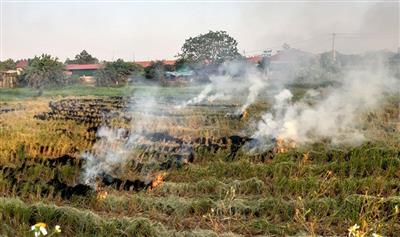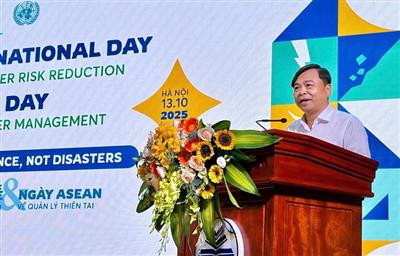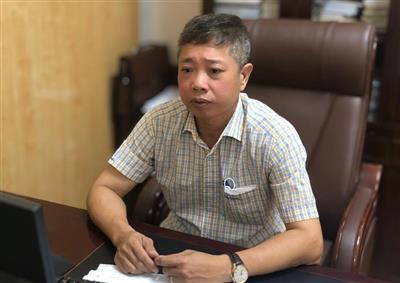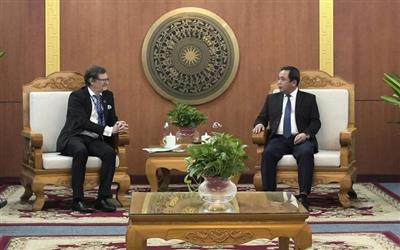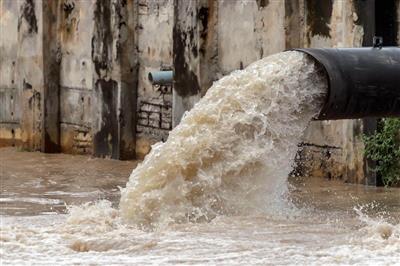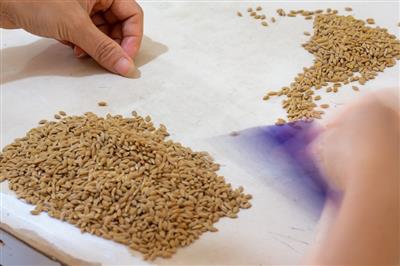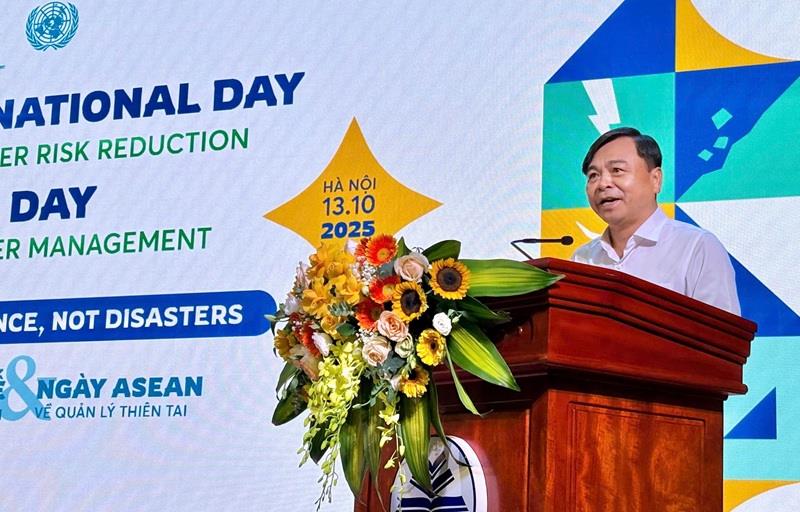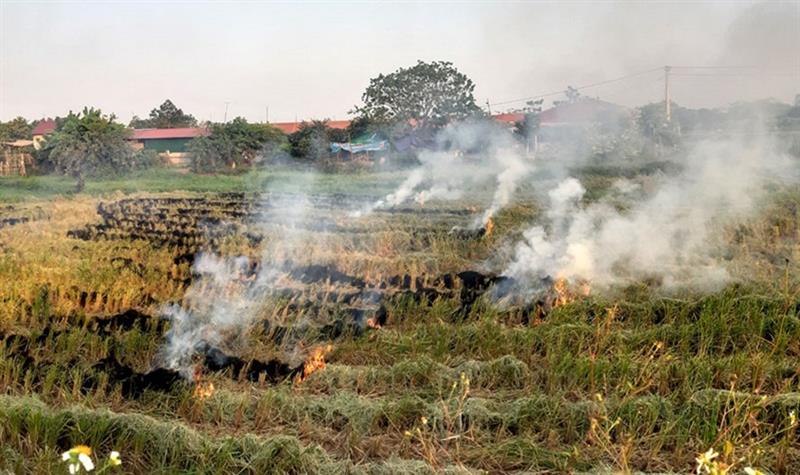
Vietnam calls for a global Green Revolution 4.0 to reshape the future of food systems
18/04/2025TN&MTIn a pivotal ministerial discussion held as part of the P4G Summit on April 17, Vietnamese Minister of Agriculture and Environment Do Duc Duy called for accelerated, inclusive, and technology-driven transformation of global food systems, framing the Green Revolution 4.0 not as a choice, but as an urgent imperative.
Green Revolution 4.0: An urgent, collective mandate
Addressing ministers, business leaders, and experts from around the world, Minister Do Duc Duy emphasized that the world is facing unprecedented, intertwined crises: intensifying climate change, rapid biodiversity loss, disrupted global food supply chains, rising protectionism, and deepening inequality between nations. At the heart of these crises, he noted, are the most vulnerable — smallholder farmers, low-income consumers, and fragile ecosystems.

Minister Do Duc Duy called on governments, international organizations, businesses, and farmers to transform today’s commitments into tangible, collective action
“We cannot solve the climate crisis by creating a food crisis. Nor can we protect the environment if we leave smallholder farmers behind,” Minister Do Duc Duy said. “And we cannot ask low-income countries to preserve natural resources sustainably without a fair sharing of responsibilities and benefits.”
Minister Do Duc Duy presented the Green Revolution 4.0 as a comprehensive, technology-centered transformation of food systems, integrating digital technology, artificial intelligence, big data, biotechnology, and innovative green solutions. Beyond boosting productivity and product quality, the initiative aims to conserve natural resources, reduce emissions, build climate resilience, and improve farmers’ livelihoods.
In Vietnam, where agriculture contributes 12% of GDP and sustains over 60% of the population, the stakes are particularly high. From a nation once gripped by food insecurity, Vietnam has risen to become one of the world’s leading agricultural exporters, with its produce reaching nearly 200 countries and territories. Yet with only 10.3 million hectares of agricultural land and escalating environmental pressures, the challenges ahead are immense.
Minister Do Duc Duy reaffirmed Vietnam’s commitment to sustainable, responsible, and modern agriculture through national strategies such as the sustainable agriculture and rural development strategy 2021-2030, the National Action Plan for transparent, responsible, and sustainable food system transformation by 2030, and the project to develop one million hectares of high-quality, low-emission rice in the Mekong Delta by 2030. These efforts reflect Vietnam’s determination to align its agricultural future with global sustainability goals.
A call for global partnerships
Recognizing that no nation can navigate this transformation alone, Minister Do Duc Duy highlighted the indispensable role of multilateral cooperation amid rising trade fragmentation and geopolitical tensions. The P4G platform, he noted, serves as an ideal forum for building joint initiatives, mobilizing resources, and sharing knowledge.

The P4G Vietnam Summit, held from April 14–17 in Hanoi, gathers global leaders and innovators to advance practical, locally driven climate solutions and partnerships for sustainable growth
He urged international partners to focus on three priority areas: first, promoting innovation and digital solutions to optimize resource use and lower emissions; second, empowering smallholder farmers and vulnerable communities through technology transfer, financial support, and capacity building; and third, sharing proven models and practical experiences in green, circular agriculture to ensure food security and livelihoods.
Reflecting on the forum’s discussions, Minister Do Duc Duy outlined a series of practical, actionable solutions aimed at transforming food systems in a sustainable, inclusive, and resilient manner.
First, he emphasized the need to increase investment in digital and green technologies that can help reduce emissions and enhance supply chain transparency. These innovations, ranging from precision agriculture and AI-powered farm management to blockchain-based traceability systems, are key to improving productivity while minimizing environmental impact.
Second, the Minister called for the development of accessible green finance systems and carbon markets tailored to the realities of farmers and small enterprises. By ensuring that smallholders and rural producers can access affordable financing and benefit from carbon credit opportunities, governments and international partners can incentivize low-emission, climate-resilient farming practices at scale.
Third, Minister Do Duc Duy stressed the importance of strengthening local capacity through open data sharing, digital skills training, and policies specifically designed to support disadvantaged groups. By empowering farmers, cooperatives, and rural communities with knowledge, technology, and tailored support, countries can build inclusive food systems that leave no one behind.
Fourth, he urged the expansion of public-private-community partnerships (PPCPs) as a strategic model for sustainable agriculture. By leveraging the strengths of governments, businesses, farmers, and civil society, these partnerships can mobilize resources, share risks, and implement practical solutions that work on the ground.
Finally, the Minister reaffirmed that substantive multilateral cooperation remains the only viable path to addressing the interconnected crises of food security, climate change, and livelihoods. He called on all countries to deepen collaboration, share best practices, and work collectively toward green, resilient, and inclusive food systems for the benefit of all.
A shared responsibility for a greener tomorrow
In his closing remarks, Minister Do Duc Duy reaffirmed Vietnam’s unwavering commitment to being a proactive and responsible partner in the global effort to build transparent, inclusive, and sustainable food systems. He called on governments, international organizations, businesses, and farmers to transform today’s commitments into tangible, collective action.
“For a future where every citizen — from the highlands of Ethiopia to the plains of South Africa, from the rice fields of Can Tho to the organic farms of Ireland — can benefit from food systems that are fair, smart, green, and resilient,” Minister Do Duc Duy emphasized, “let us begin that work together, starting today.”
He stressed that reshaping the global food system is no longer the task of a single sector or nation, but a shared responsibility that demands sustained, equitable cooperation. Only through genuine partnerships can the international community overcome pressing challenges in food security, climate change, and livelihoods, and secure a better, greener future for generations to come.
PV




